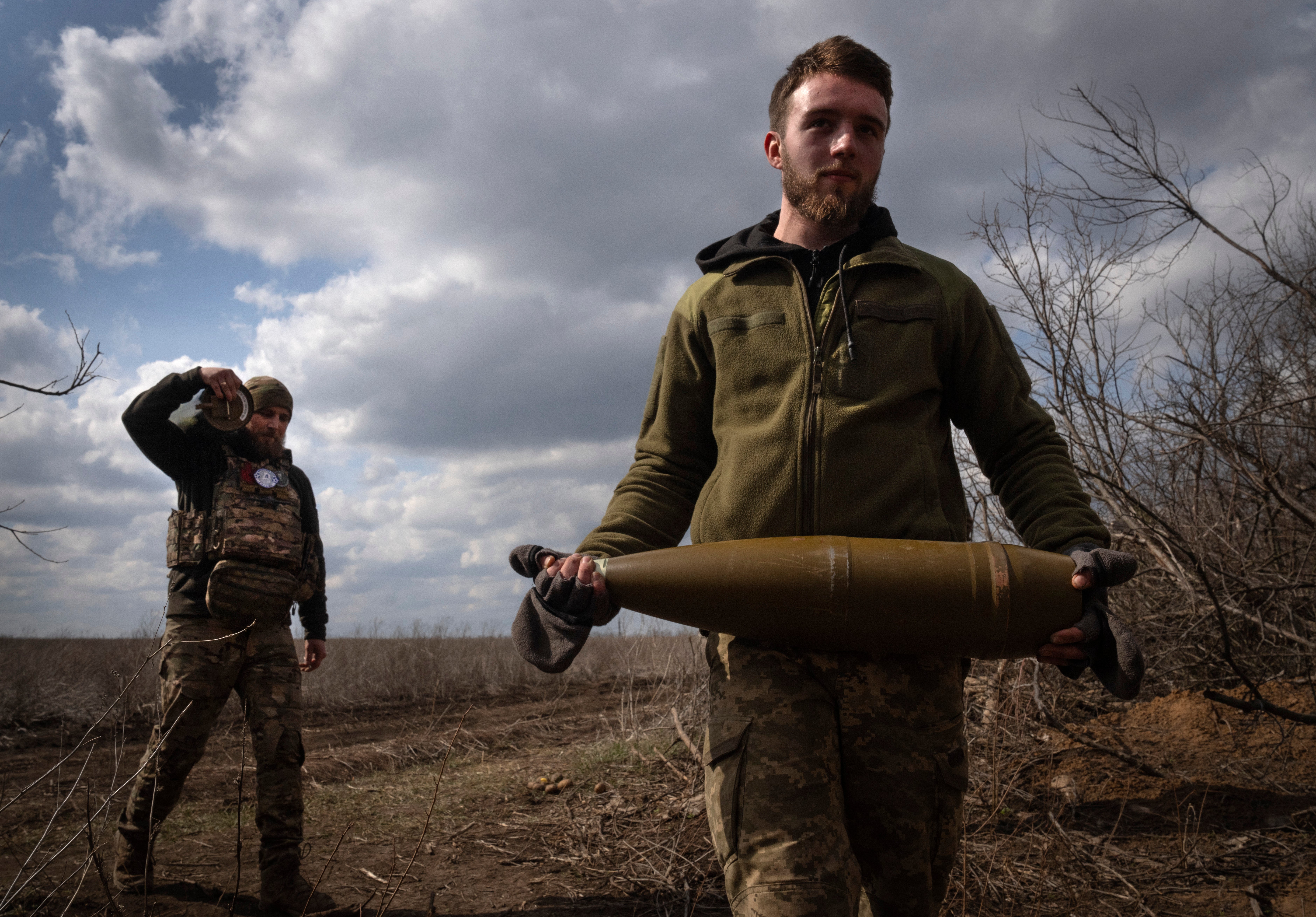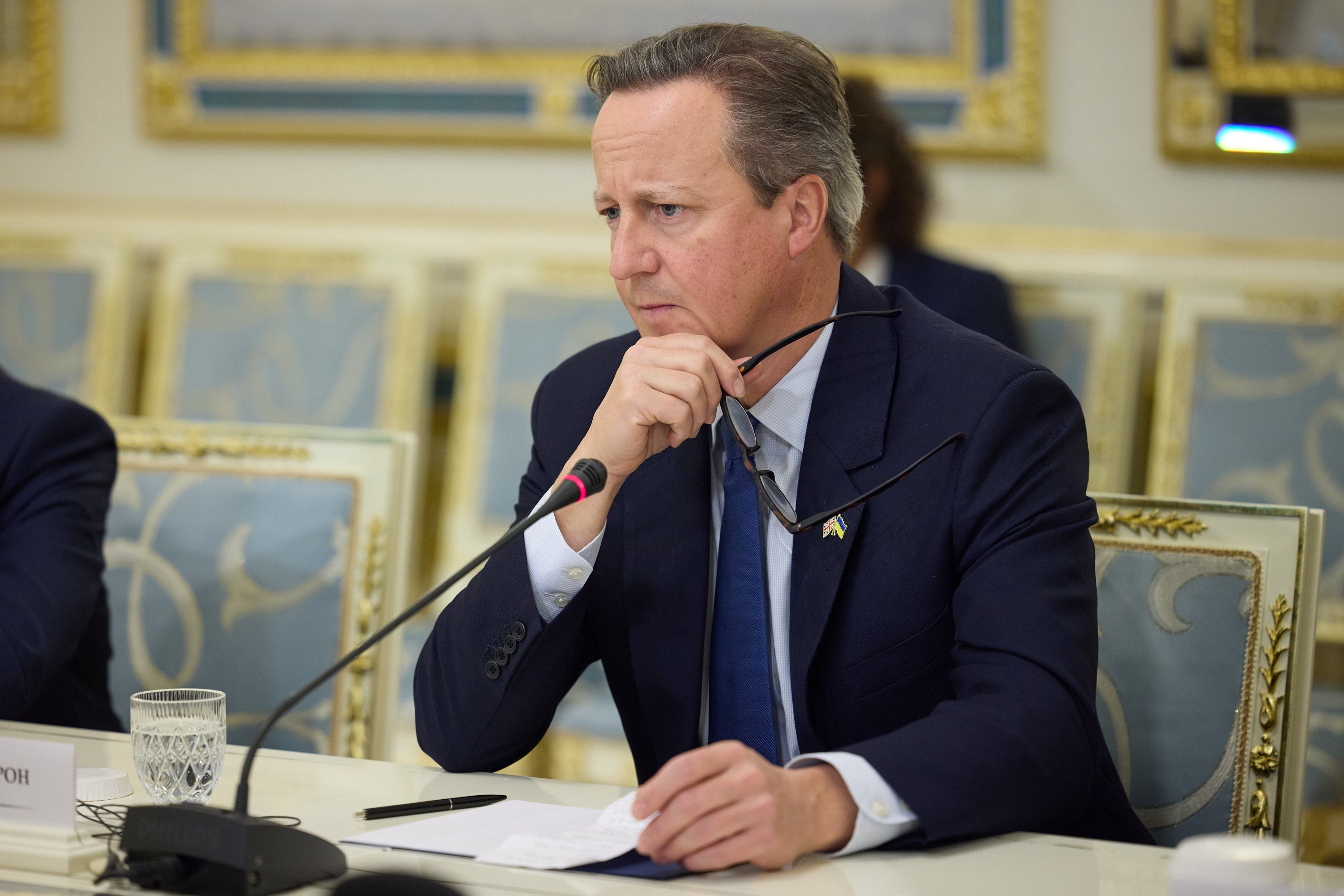Ukraine’s opposition leader: The best way to fight Vladimir Putin is to use his money against him
Exclusive: Leading Ukrainian politicians, including president Volodymyr Zelensky, are calling for Western nations to transfer hundreds of billions of dollars of seized Russian assets to Ukraine
Your support helps us to tell the story
From reproductive rights to climate change to Big Tech, The Independent is on the ground when the story is developing. Whether it's investigating the financials of Elon Musk's pro-Trump PAC or producing our latest documentary, 'The A Word', which shines a light on the American women fighting for reproductive rights, we know how important it is to parse out the facts from the messaging.
At such a critical moment in US history, we need reporters on the ground. Your donation allows us to keep sending journalists to speak to both sides of the story.
The Independent is trusted by Americans across the entire political spectrum. And unlike many other quality news outlets, we choose not to lock Americans out of our reporting and analysis with paywalls. We believe quality journalism should be available to everyone, paid for by those who can afford it.
Your support makes all the difference.After more than two years of all-out war with Russia – and a decade of fighting in the eastern regions – the time has come for a new approach to fighting Vladimir Putin: spending his money against him. For Ukrainian opposition leader Kira Rudik, this is the ultimate option.
For the first time since February 2022, when Mr Putin launched his full-scale invasion of Ukraine, Western military aid to Kyiv is faltering and it has allowed Russia to gain the initiative on the frontline.
A $60bn (£47bn) aid package to Ukraine has been trapped in US Congress for seven months, hostage to disagreements between a handful of hardline Republicans and the remainder of the House of Representatives, the lower chamber of Congress. In Europe, stockpiles of artillery shells are running dry and leaders are only now belatedly trying to remedy this problem.
Russia, meanwhile – enjoying a six-to-one artillery advantage, according to the latest estimates from Ukrainian military chief Oleksandr Syrskyi – has taken several towns in eastern Ukraine in the past seven weeks and is threatening to take more.
As the United Kingdom, the United States and the European Union all prepare to go to the polls this year – something that is bound to distract them to some degree from Ukraine– the message, then, is simple: now is the time for Kyiv to find a different source of funds.
That is why Kira Rudik, 38, leader of Holos, a liberal centrist party with 20 seats in Ukraine’s parliament, is in London.

“We need to figure out how to get the support that we need without getting into people’s pockets,” Ms Rudik tells The Independent during a sit-down in the lobby of a west London hotel. “And we have a solution.”
The politician is championing a plan to seize roughly $300bn (£238bn) in Russian assets frozen in Europe, the US and Japan, and redirecting them to Ukraine to be used in its war effort. It is hers – and her country’s – bid to make Ukraine at least partially self-reliant at a time when they do not know when, or from where, the next tranche of Western support will come.
“The success or failure of Ukraine’s defences depend on resources, and as the war drags on and the West starts to tire of sending more money, the one thing that may determine the outcome is confiscating the Russian assets and sending them to Ukraine,” she says.
Bill Browder, a friend of Ms Rudik and formerly the largest foreign investor in Russia before being kicked out of the country by Mr Putin, said: “The success or failure of Ukraine’s defences depend on resources, and as the war drags on and the West starts to tire of sending more money, the one thing that may determine the outcome is confiscating the Russian assets and sending them to Ukraine.
“Russia launched this disastrous and expensive war. They should now pay for it under international law.”
The option is, however, fraught with difficulties – shifting confiscated Russian central bank money risks harming trust in the US dollar’s standing as the world’s dominant currency, to name one issue. Historically, such reserves have always been safe, even at times of war.
But the idea is nonetheless gaining traction as other means of funding Ukraine remain stuck.

The US, looking for a legal workaround, has sold the idea as a “countermeasure” tantamount to an advance on what Russia will have to pay Ukraine for the damages it has caused the country.
“At the beginning, everyone said no,” Ms Rudik says. “Now, most nations have come around to the idea. But it is much easier to go from no to maybe, than from yes to actual action.”
Her mission is now to get all members of the Group of Seven (G7) to back the plan, as it requires unanimity to stand a chance of being actioned. France, Germany and Italy remain unsure.
“Most of the people agree with us and say that it is a great idea, and that they support it,” she says. “Now, we need someone, maybe British politicians, to show leadership in this setting.”
The UK foreign secretary David Cameron appears ready to take up this mantle. Earlier this month, he said the government was prepared to back the action and wanted to maximise the unity of the G7 and EU on the issue.
Crucially, though, he added that if those who are opposing it refuse to back down, the UK “will move ahead with allies that want to take this action” anyway.
Lord Cameron was one of the first Western leaders to endorse the idea of sending seized Russian assets to Ukraine.
“At the end of the day, Russia is going to have to pay reparations for its illegal invasion, so why not spend some of the money now,” he said in January.

This is a flavour of the leadership about which Ms Rudik has spoken. The US and Canada, as well as Belgium, are also on board, at least in theory.
As Ukraine prepares for the remainder of a difficult 2024, with elections in the West looming and Russian forces rampant, seizing Mr Putin’s money has never been more important.
And although two years ago the idea was quickly swept aside by Kyiv’s Western backers, there is now hope that the plan may just get pushed through – in part due to the persistence of Ms Rudik.
Towards the end of The Independent’s conversation with the Ukrainian political figure, the topic of how to stay positive in a time of what seems like endless war is broached.
“We have no choice other than to be hopeful,” she says. “You can sit and say, we give up, but then what?
“I have never heard or seen anyone in Ukraine talk about giving up. Everybody has lost someone, yet everyone is doing everything they can to win the war.”
Ms Rudik’s interminable push to seize Russia’s assets abroad is her way of fighting for Ukraine, and it may just prove vital to her country’s victory over Mr Putin.

Join our commenting forum
Join thought-provoking conversations, follow other Independent readers and see their replies
Comments